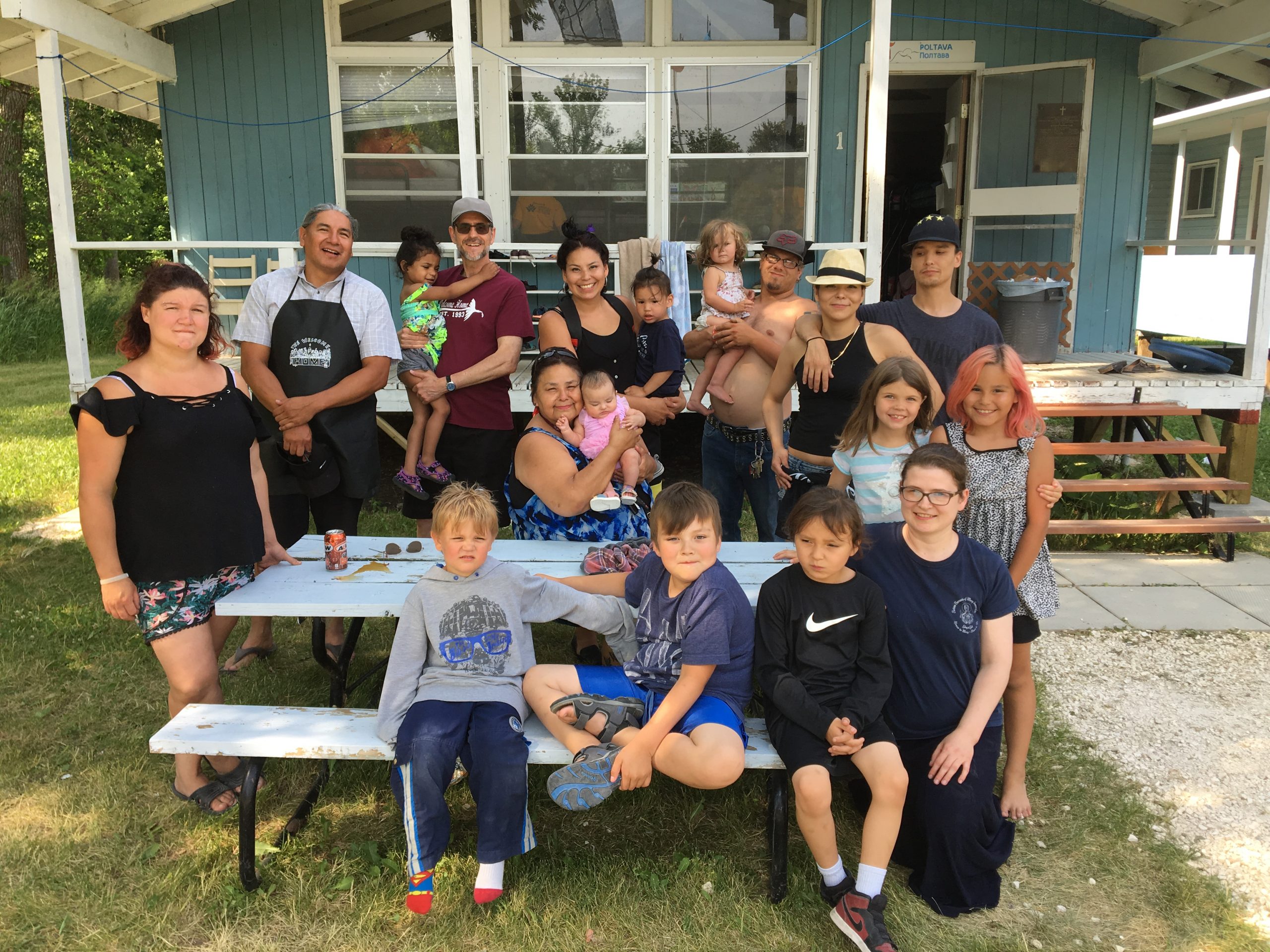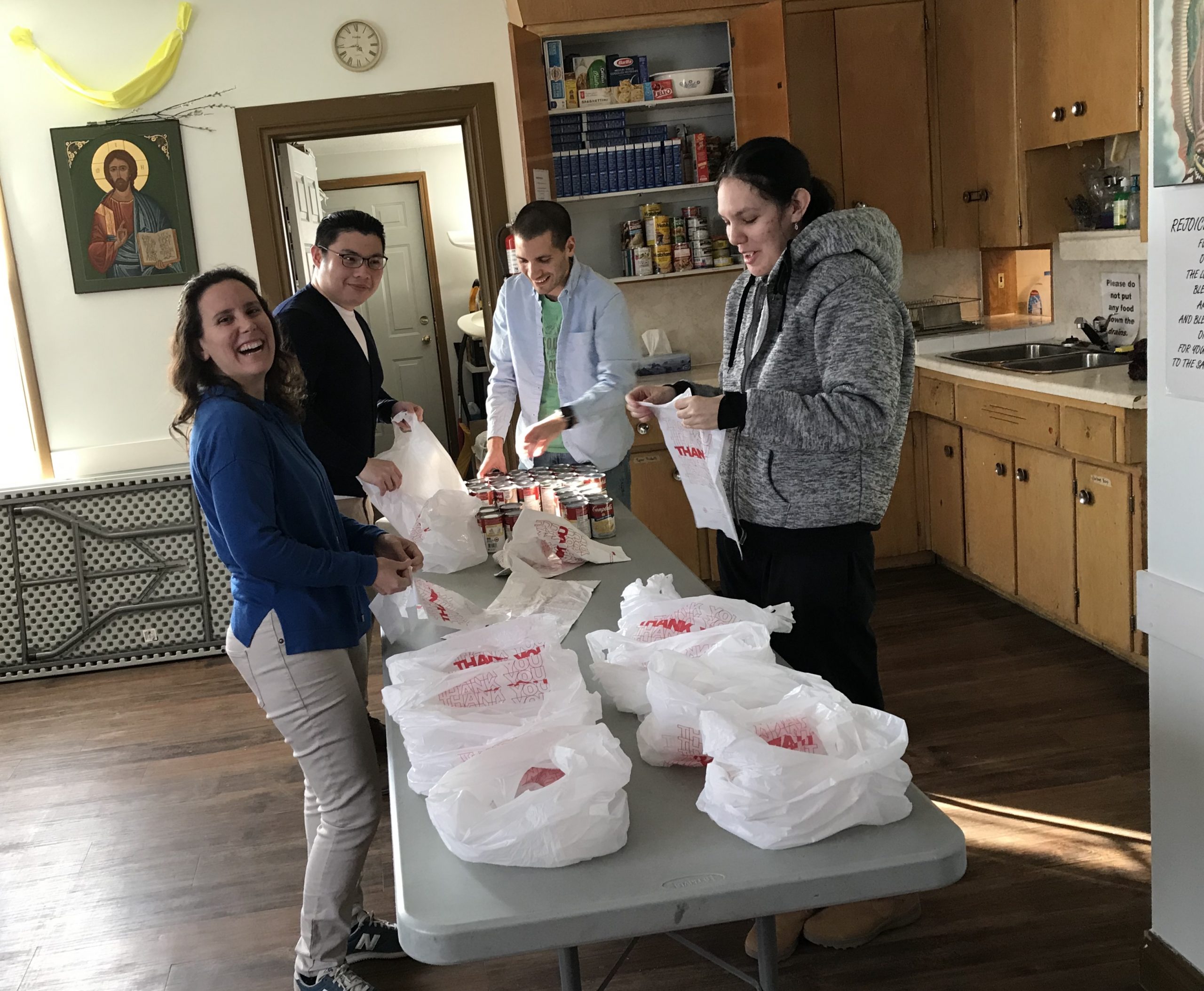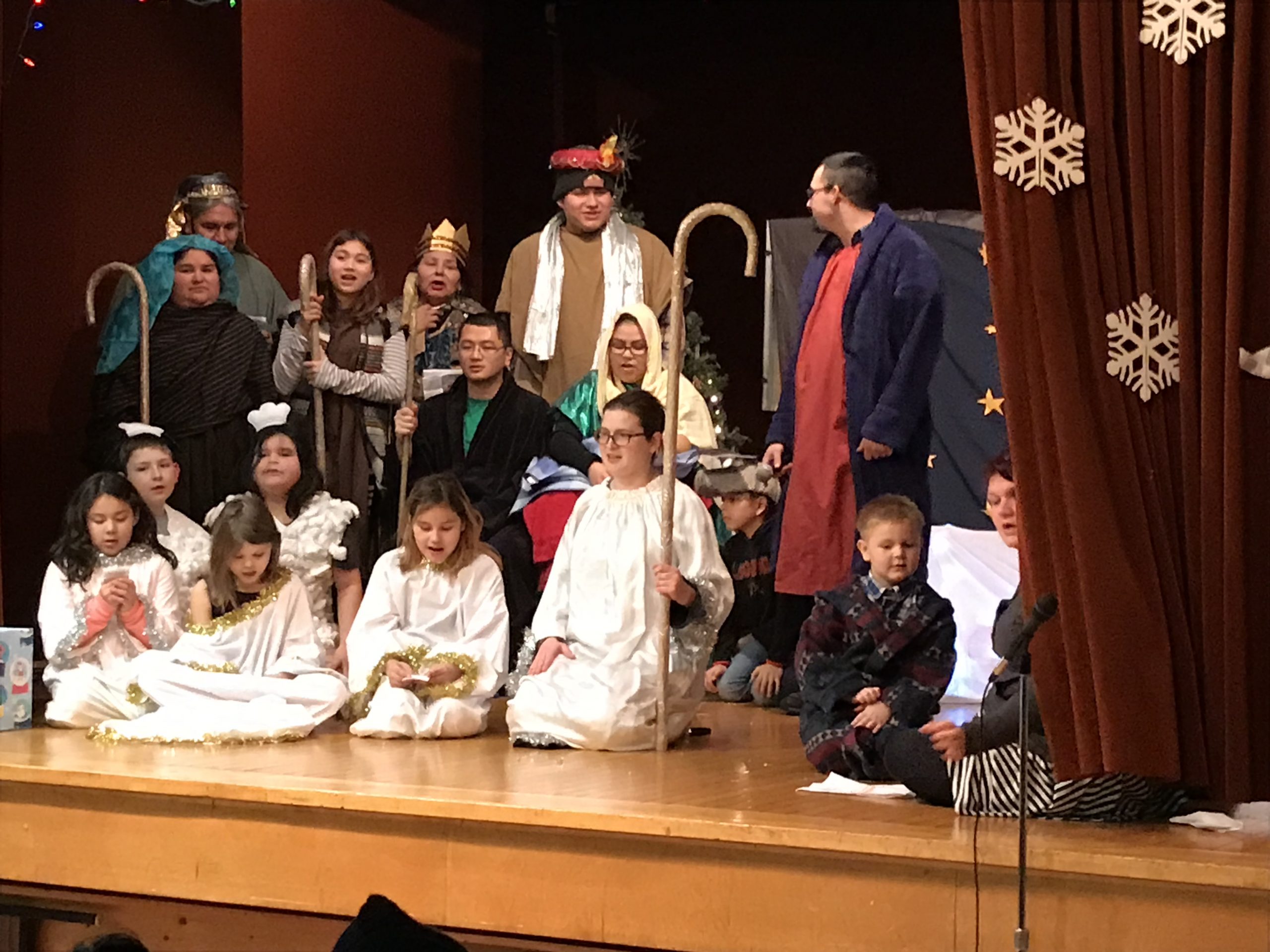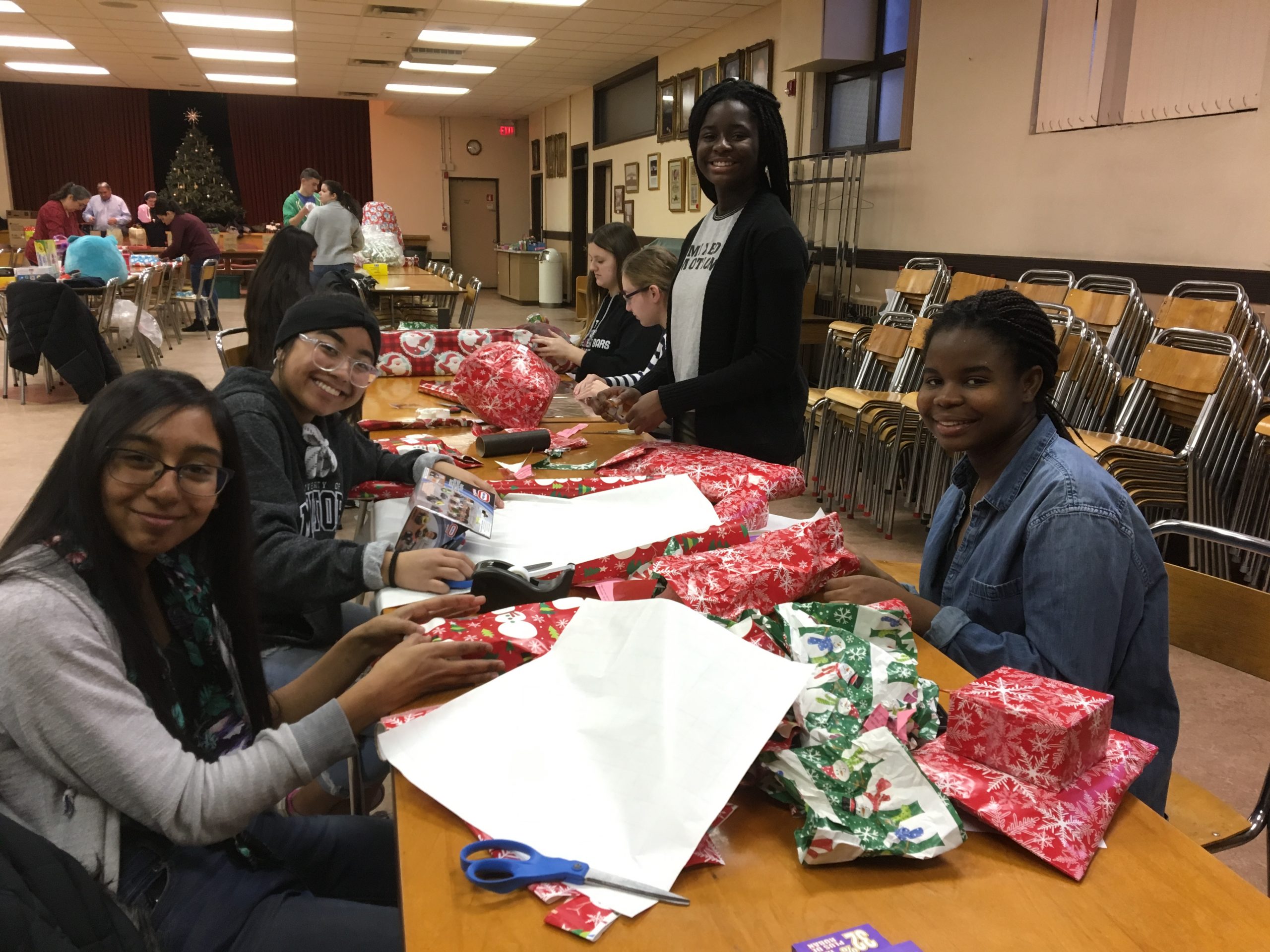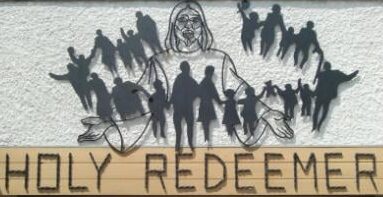The Welcome Home’s Faith Community
The Welcome Home is a mission of the Congregation of the Most Holy Redeemer, known as the Redemptorists, a Catholic religious order. The order was founded by St. Alphonsus Liguori in the region around Naples, Italy, in 1732 as a missionary order dedicated to preaching the gospel to the poor and abandoned.
Ten priests, a bishop, and one lay brother established and continue to oversee the Welcome Home. 1 1 Yorkton Redemptorists, “About Us: Our Confreres,” http://yorktonredemptorists.com/about-us/our-confreres/. In addition to this initiative, they operate three parishes in Manitoba and Saskatchewan and are involved in youth ministry and in spiritual direction including through parish-centred retreats. 2 2 Yorkton Redemptorists, “About Us: Contact Us,” http://yorktonredemptorists.com/about-us/contact-us/.
More broadly, this Redemptorist community and some of the volunteers at the Welcome Home are part of the Ukrainian Greek-Catholic Church, which has approximately 5.5 million adherents globally, with significant populations in Ukraine, Poland, Russia, the United States, Australia, Brazil, and Argentina. 4 4 Ukrainian Greek-Catholic Church, “Склад і територія,” http://ugcc.ua/official/ugcc-today/suchasniy_stan_70010.html. There are approximately 52,000 adherents in Canada. 5 5 Statistics Canada, “2011 National Household Survey,” https://www12.statcan.gc.ca/nhs-enm/2011/dp-pd/prof/index.cfm. The Ukrainian Greek-Catholic Church is a church that follows the Byzantine tradition in communion with Rome.
Theological Motivation
The basis of the ministry at the Welcome Home is “to welcome those who hunger—spiritually, physically, emotionally—into a safe space with Christ-like hospitality and to strive, as Pope Francis says, ‘to be a church that warms hearts and heals wounds.’” 6 6 What Is the Welcome Home? Pamphlet, n.d.
The Welcome Home is not simply a place where people gather from outside for daily, weekly, or monthly community. It is also a live-in religious community, composed of the Redemptorists and several dedicated laypeople who assist in its operation throughout the year. Each year the Redemptorists operate a program through which Catholic laity join them in the community and aid them in living out their order’s mission.
History and Goals
The Welcome Home was founded in 1993, opening its doors to the local neighbourhood in September of that year. From the beginning, the Redemptorists reached out to the local neighbourhood to build relationships and to learn what the needs of the people were. The activities of the Welcome Home are currently coordinated by Delores Courchene and Fr. Larry Kondra, CSsR, who serves as chaplain. Both Fr. Larry and Delores have been involved with the Welcome Home since its earliest days.
Over the years, the Welcome Home has been served by nine Redemptorist priests and brothers, including three from Ukraine. Additionally, the Welcome Home has hosted fifty-three live-in volunteers since its founding, who have come from Canada, the United States, Poland, the United Kingdom, China, the Philippines, and twelve from Ukraine. 9 9 The Welcome Home, “The Welcome Home: Stats 1993–2020,” email from Fr. Larry Kondra, CSsR, September 11, 2020.
The goals of the Welcome Home are simple: to minister to people, to give them a community and a place to grow in faith; in short, to provide a community in which they can experience God’s love. As the Redemptorists say, “The Welcome Home ministry has grown and changed over time, yet it remains a beacon of hope to those on the margin of our church and society. We are constantly striving to live out our faith by being Good News to those in need.” 10 10 What Is the Welcome Home? Pamphlet, n.d.
Activity and Impact
The Welcome Home is active for ten months of the year, from September to June, seeking to meet the physical and spiritual needs of the local neighbourhood. During these three seasons it engages in its own outreach while at the same time members of the Welcome Home community volunteer at a variety of organizations throughout the local area, seeking to build relationships with their neighbours.
The needs of the North Point Douglas neighbourhood are great. Seventy-one percent of North Point Douglas residents with children experience the challenges of single parenting, compared to 45 percent for Winnipeg as a whole. Thirty-three percent do not have a high school certificate or diploma, and 38 percent have a post-secondary certificate, diploma, or degree; in Winnipeg as a whole the figures are 17 percent and 53 percent, respectively. In 2015, the average individual income in North Point Douglas was $26,743, compared to $44,915 for the city of Winnipeg as a whole. 11 11 What Is the Welcome Home? Pamphlet, n.d.
In a typical ten-month period, the Welcome Home provides 900 hampers of food and distributes 1,500 sandwiches to those with food insecurity. Additionally, 1,600 meals are served every year at the Thursday Family Night events. 12 12 The Welcome Home, “The Welcome Home: Stats 1993–2020,” email from Fr. Larry Kondra, CSsR, September 11, 2020.
The Welcome Home offers weekly and monthly activities for the local neighbourhood, which in 2019–20 included the following. 14 14 What Is the Welcome Home? Pamphlet, n.d.
Family Night: Every Thursday the community comes together for prayer, in the form of the Byzantine Vespers service, after which they sit down together for a meal. Currently, twenty-eight groups throughout the city are involved in providing Family Night dinners. These groups, along with the many volunteers from North Point Douglas and other parts of Winnipeg, have helped to make the Welcome Home not simply a North End initiative but one that draws together people from across Winnipeg out of a desire to serve others.
Sunday Divine Liturgy: Each Sunday morning, the community comes together to serve the Divine Liturgy, the eucharistic liturgy according to the Byzantine rite.
Spirit of Recovery: Using the twelve-step Medicine Wheel program, this activity supports fellowship, healing, and spiritual growth.
Cooking classes: Cooking classes for women and for young people are offered, during which there is time for fellowship and spiritual growth while taking the time to share old recipes and discover new ones.
Adult recreation night: This brings people together for an evening of fellowship and fun.
Spiritual formation: Along with the regular liturgies, times for communal prayer, and spiritual growth, the Redemptorists also sponsor catechism classes for both adults and children. In addition to further presenting the gospel to people and teaching them about the Catholic faith, the catechism classes serve to prepare those who wish to receive Catholic sacraments, including baptism, chrismation, and the Eucharist. Spiritual counselling is also offered on a regular basis to those in need.
The neighbourhood has a significant Indigenous population, with 44 percent claiming an Indigenous identity (First Nations, Métis, or Inuit) in the 2016 census. (The percentage of the total Winnipeg population claiming an Indigenous identity is 12 percent.) 16 16 City of Winnipeg, “2016 Census Data: North Point Douglas,” https://winnipeg.ca/census/2016/Clusters/Point%20Douglas%20North%20Neighbourhood%20Cluster/Point%20Douglas%20North%20Neighbourhood%20Cluster.pdf. As in other parts of Canada, many of the First Nations and Métis people living in North Point Douglas profess a Christian faith or background that has been shaped by both positive and negative experiences. Fr. Larry Kondra is very aware of this reality and seeks with his colleagues to ensure that the Welcome Home can be a place of healing that is profoundly rooted in the Catholic faith but also open to the integration of Indigenous traditions:
They encounter us and it’s kind of a big healing for them and discovery of a place that is welcoming and where they feel at home and yet is also respectful of traditions that they’re still wanting to keep. I’ve had conversations with some of those folks who at the same time have a Catholic identity and want to pursue their Indigenous traditions and spirituality. They’re pursuing an integration of those two things. They’re very much Catholic, very much with the Church and at the same time feel free that they can integrate that. So, we’ve been open to that. 17 17 Interview with Fr. Larry Kondra, CSsR, November 16, 2020.
Support and Budget
The ministry of the Welcome Home is supported from three main sources: the Yorkton Redemptorists, individual donations and grants including those from other charities, and occasional grants from civic authorities. A significant proportion of individual donations come from Ukrainian Catholics: in Winnipeg, in the rest of Manitoba, and in parishes and individuals in the rest of the country. 18 18 Interview with Fr. Larry Kondra, CSsR, November 16, 2020.
In 2019, the total income of the Welcome Home was $133,367, the vast majority of which was derived from tax-receipted donations and gifts ($58,215) and gifts from other charities ($65,806). 20 20 Canada Revenue Agency, “2019-12-31 Charitable return of the Welcome Home—a Mission of St. Alphonsus Inc.,” https://apps.cra-arc.gc.ca/ebci/hacc/srch/pub/dsplyRprtngPrd?selectedCharityBn=889406773RR0001. The single largest donor to the Welcome Home is the Yorkton Redemptorists, who in 2019 provided a grant of $53,500. 21 21 The Welcome Home, “Welcome Home—Profit and Loss Statement—January Through December 2019,” email from Fr. Larry Kondra, CSsR, September 11, 2020. The Welcome Home received no government funding in 2019.
The 2019 expenses of the Welcome Home totalled $125,578, which fell into two categories: charitable programs ($66,971) and management and administration ($58,607). 22 22 Canada Revenue Agency, “2019-12-31 Charitable return of the Welcome Home—a Mission of St. Alphonsus Inc.,” https://apps.cra-arc.gc.ca/ebci/hacc/srch/pub/dsplyRprtngPrd?selectedCharityBn=889406773RR0001. This does not include the significant outlay of in-kind donations of food and non-perishable items that are donated to the Welcome Home and that support a significant portion of its outreach activities every year.
Conclusion
The Welcome Home is a ministry that serves all who come to their doors, yet in a unique way it reveals an aspect of what reconciliation with Indigenous Canadians can look like. There is much anecdotal evidence that when Ukrainian settlers first arrived from Galicia in the late nineteenth century and began to farm land in the Prairies, it was people of the various First Nations who helped them survive on the land, fed them in those first winters of the 1890s, and taught them how to shelter from the cold.13 This is a history that has bound and continues to binds Ukrainian Catholics and Indigenous Canadians together, helping one another as they build community for the good of all.
The Welcome Home illustrates the capacity of a small faith-based initiative to have an outsized impact on the people with whom they share a neighbourhood and city. It undertakes the simplest of missions: to feed the hungry, to offer a community to those seeking one, and to heal those who are suffering in body and spirit. The
Yorkton Redemptorists and the faithful laity who serve with them demonstrate the fullness of diakonia: to respond to a call to serve and love others. Noel Bustillos, who volunteered as a livein member of the Welcome Home and is now a novice in the Redemptorist order, reflects on the impact of serving those who come to the Welcome Home and how this interacts with his faith: “As Redemptorists and as volunteers at the Welcome
Home, we are evangelized by the work we do. In a way we are not evangelizing, we are being evangelized ourselves.”
23
23
Interview with Noel Bustillos, November 20, 2020.

